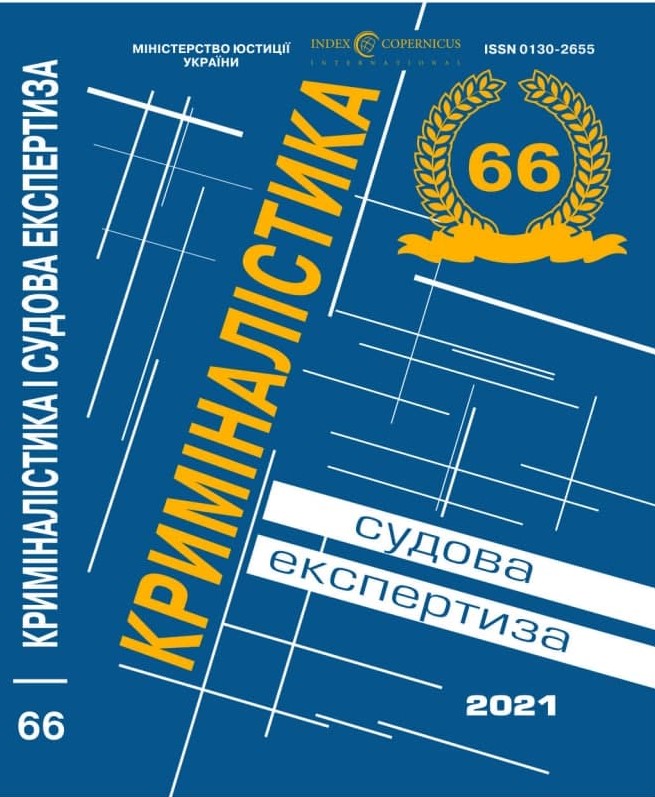
DOI: https://doi.org/10.33994/kndise.2021.66.31
O. Mazur
The article discusses the concept, types and essence of special knowledge in criminal proceedings, as well as their evidentiary value in pre-trial investigation and trial. It is analyzed the practice of the European Court of Human Rights on the appointment of a forensic examination.
The objectives of criminal proceedings are to ensure a prompt, complete and impartial investigation and trial so that everyone who has committed a criminal offense is prosecuted to the best of his/her own fault. In addition, an innocent person is accused or convicted, no person is exposed, unjustified procedural coercion, and that due process is applied to each participant in criminal proceedings.
It is emphasized that among the ways of collecting evidence by the parties to criminal proceedings listed in the Criminal Procedural Code of Ukraine, there are those that require the use of special knowledge, namely: requesting and obtaining expert conclusions and carrying out other procedural actions with the participation of a specialist. At the same time, the expert opinion is an independent source of evidence.
Special knowledge in criminal proceedings is used in the investigation of any criminal offenses, but the Criminal Procedure Code of Ukraine does not define its concept, despite the fact that many scientific works have been devoted to the issue. Unfortunately, the legislator has not yet reflected the conclusions of scientists about the essence of special knowledge.
It is considered examples of practice in the appointment and conduct of forensic examinations and the fact of violation of the law, when applying special knowledge.
Based on the analysis of theoretical and various aspects of the use of special knowledge in criminal proceedings, a conclusion is made about the extremely important value of special knowledge for the process of proving and fulfilling the tasks of criminal proceedings.
On the example of the decision of the European Court of Human Rights, attention is drawn to the inadmissibility of violations of the requirements of the current legislation in the work of an investigator, prosecutor, judge, since this can lead to negative consequences.
Key words:
special knowledge, specialist, forensic expert, forensic examination, case law of the European Court of Human Rights










